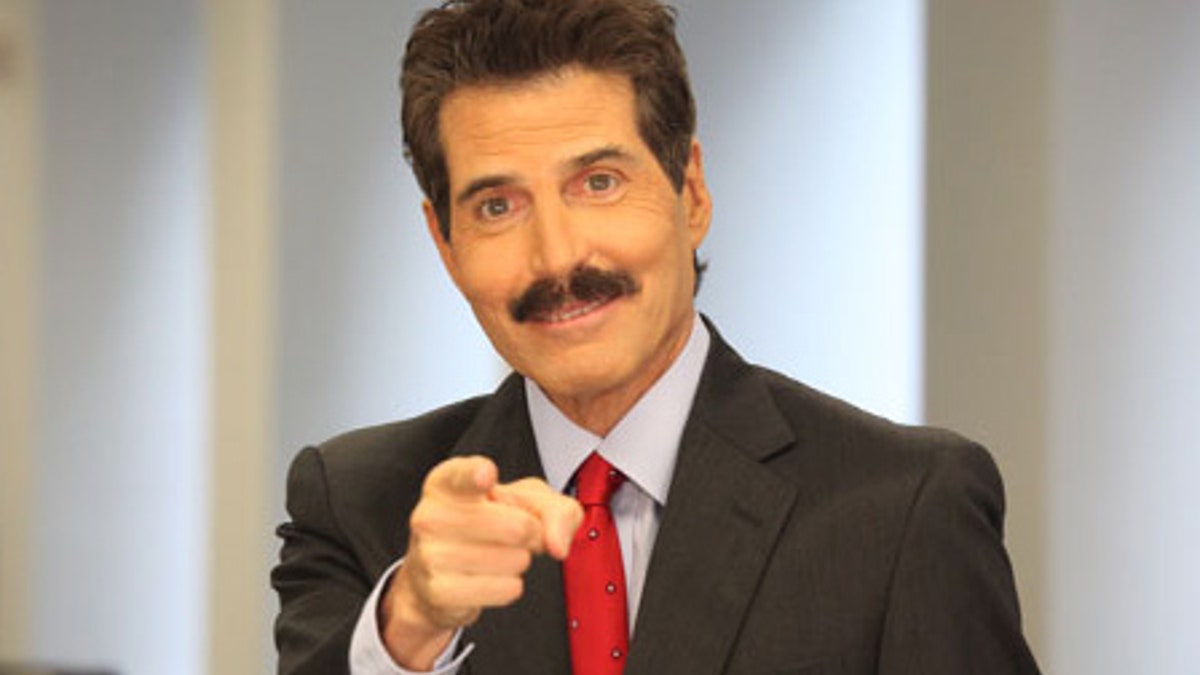
John Stossel, host "Stossel" on Fox Business Network (FBN)
Our government prints lots of money. It's one way to cover deficit spending. Of course, that means that over time, dollars lose value.
What if I could print my own dollars to compete with the government? I even have an idea of what they might look like.
But I can't compete with government's currency. It's against the law. People have gone to jail for trying to issue alternative currencies.
Recently on my show former Federal Reserve economist David Barker argued that allowing private currency would help solve problems like inflation:
"In all of the instances in world history where we've had [private currencies], we haven't had rampant runaway inflation. But we have many examples of that under government monopoly money," he points out.
You bet.
Consider the $100 trillion dollar bill from Zimbabwe.
American politicians haven't trashed the dollar to that point...yet.
What about a gold standard to stop inflation? Many libertarians support that, but Barker points out: "A gold standard really is just another government-mandated money [system]."
And it's not even a guarantee against inflation, because government can always change the amount of gold it offers in exchange for a dollar. President Franklin Roosevelt did that in the Great Depression, using "lucky numbers" to pick the price. One time he changed the dollar/gold exchange rate by 21cents, because 7 was his lucky number, and 21 is 7 times 3.
FDR's Treasury Secretary wrote: "If anybody ever knew how we really set the gold price through a combination of lucky numbers, I think they would be frightened."
But recently, inflation in government-issued dollars has not been that terrible. So why would anyone switch to private currencies?
It's hard to say what innovations people might come up with if they were allowed to compete with government in issuing money -- just as it would have been hard to predict the computer when everyone used typewriters.
But Barker has ideas: Private money might have chips embedded in it to help with tracking and prevent counterfeiting.
We might have a completely digital currency -- "Bitcoins" are one example that already exists, even though it's not legal.
Private currencies might pay interest. Or the money might come with ads on it.
There are historical examples. In the late 1700s there was a shortage of coins in many parts of Great Britain. So a businessman who sold iron and tin helped to meet the demand by issuing coins, and advertised himself at the same time by putting pictures of his company on them:
American railroads often did the same thing:
Private currencies were then made illegal, not because they were unreliable, but, says Barker , because "governments wanted the profits that these private companies were making."
It's impossible to say what innovations in currency entrepreneurs would come up with.
We should find out.
Get government out of the way, and let a thousand currencies bloom.
John Stossel is host of "Stossel" on the Fox Business Network. The show airs Thursdays at 10 p.m. and midnight ET. It re-airs Fridays at 10 p.m., Saturdays at 9 p.m. and 12 midnight, and Sundays at 10 p.m. (all times eastern). He's also the author of "Give Me a Break" and of "Myth, Lies, and Downright Stupidity."
To find out more about John Stossel, visit his site at johnstossel.com. To read features by other Creators Syndicate writers and cartoonists, visit the Creators Syndicate Web page at www.creators.com.








































